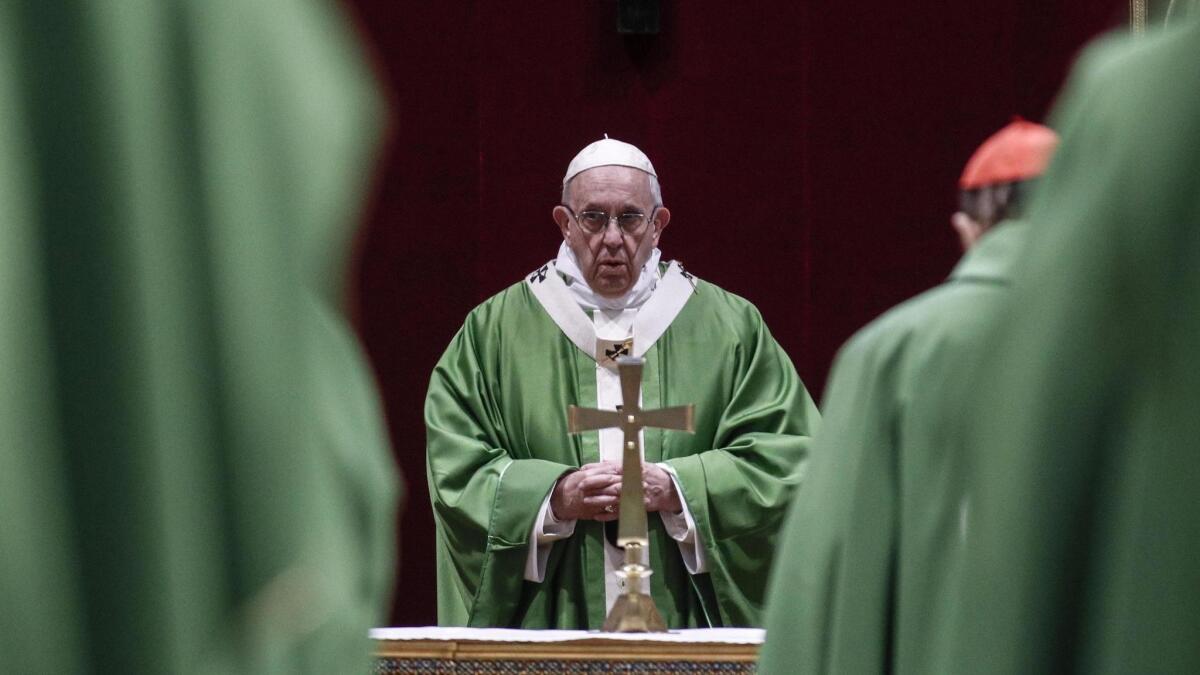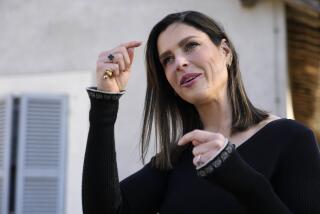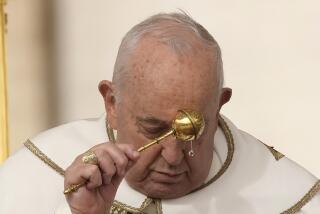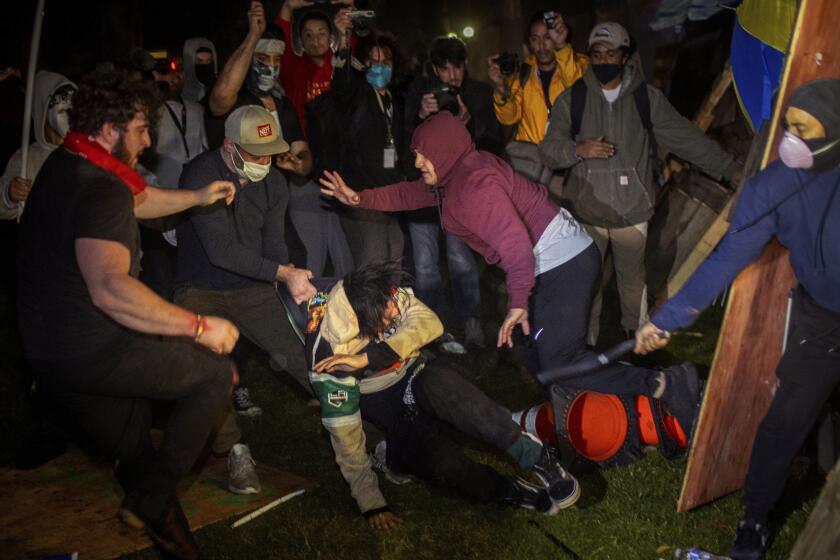Pope condemns child abuse by priests but fails to issue zero-tolerance rule at summit

Victims of sex abuse at the hands of the Catholic Church had yearned for this moment: a landmark conference at the Vatican focusing on the hideous toll of the long-running international scandal and on methods to better police church officials’ conduct.
And as the unprecedented summit concluded Sunday, Pope Francis slammed child sex abuse by priests as “brazen, aggressive and destructive evil,” likening it to “human sacrifice.”
But after having huddled with 190 bishops, priests and monks for four days, Francis was roundly criticized by activists for failing to announce any universal zero-tolerance rule to ensure rapist priests and the bishops who cover up for them are automatically ousted from the church.
“What we needed at this summit was a universal ‘one strike and you’re out’ rule, but instead we got lukewarm platitudes from the pope,” said Peter Saunders, a British abuse victim and activist.
The much-awaited conference, which included heartbreaking testimony of abuse against children and women, finished with sweeping statements, but a somewhat opaque action plan.
In his speech wrapping up the conference, Francis called for “an all-out battle” against the “abominable crimes that must be erased from the face of the Earth.”
He warned the church would now protect children from “ravenous wolves,” adding, “I am reminded of the cruel religious practice, once widespread in certain cultures, of sacrificing human beings — frequently children — in pagan rites.”
To stop priests from becoming “the tools of Satan” and halt two decades of abuse scandals that have rocked the Catholic Church, Francis outlined measures to increase protection for children that included making clear to bishops that anti-abuse guidelines were “rules and not simply indications.”
He also said the church would change its current rule on penalizing priests found with pornography featuring children under age 14. Under the new rules, penalties would also apply to cases involving images of children older than 14, Francis said.
After the pope spoke, Italian priest Federico Lombardi, who helped run the summit, said the Vatican would establish an “exemplary” anti-abuse law covering the tiny Vatican city-state — which has never had one — and send handbooks listing best practices to bishops around the world.
Task forces will also be organized in countries where there is a “dire need” to train bishops with little experience of tackling abuse, said German priest Hans Zollner, another summit organizer.
But abuse activist Saunders said the summit had achieved little with such measures.
“Everyone of sound mind knows you report rapists to the police and dismiss them from the church if they are convicted — you don’t need a handbook to tell you that,” he said.
Anne Barrett Doyle, co-director of BishopAccountability.org, agreed with Saunders, and said that Francis also needed to release church files on abusive priests.
“I am stunned and speechless if this is the best he can do,” she said.
Calls were made during the summit by delegates to lift the “pontifical secrecy” that has kept cases out of the public eye.
The Vatican’s top abuse investigator, Maltese Archbishop Charles Scicluna, called the rule “top-heavy” and “counterproductive,” adding it was now negotiable.
Cardinal Blase Cupich of Chicago also called for lay experts to be involved in abuse investigations, a point also made in 21 proposals to bishops issued by Francis at the start of the conference.
On Saturday, German Cardinal Reinhard Marx admitted that files on abuse cases had been destroyed by the church in Germany. Scicluna was asked, meanwhile, why his inquiry into widespread abuse in Chile, which led last year to a number of local bishops resigning, was being withheld from prosecutors trying to obtain it.
He said the victims interviewed had supplied information reserved for the pope. “The Holy Father wants to respect that,” he said, although he added that victims had the “right and duty” to also speak to civil investigators.
Bishops at the conference heard shocking video testimony from victims, including one woman who described being pinned down with “superhuman strength” by a priest who raped her when she was 11.
“I desensitized myself, I held my breath, I came out of my body,” she said.
Father Lombardi described her testimony as “the most powerful moment of the conference.”
A number of women were selected to provide evidence to the summit about being raped, suggesting the Vatican wanted to debunk disputed claims that because most victims are male, priestly abuse is linked to homosexuality.
In his speech Sunday, Francis focused on statistics showing most child sex abusers are not priests but “parents, relatives, husbands of child brides, coaches and teachers,” adding that a report revealed 69% of abuse in Italy took place in the home.
He also criticized sex tourism and online porn, which he claimed led to child sex abuse.
Barrett Doyle warned that by putting the blame for most abuse on society, Francis was letting bishops off the hook. “Arguing that this happens in all sectors of society is a defensive rationalization,” she said.
The failure to issue universal zero-tolerance rules meant activists would now shift their attention back to civil justice, she said.
“In the U.S., over 15 attorneys general will continue their investigations of criminal cover-up by dioceses, and an untold number of victims in New York state will file lawsuits as soon as the yearlong look-back window begins,” she said.
Asked why the summit had been short on concrete measures to tackle abuse, Indian Cardinal Oswald Gracias said changes needed to come from local bishops.
“It’s not like the Holy Father snaps his fingers and everything changes all over the world,” he said. “The implementation will have to be done at the local level.”
“I can see why you feel nothing has happened,” he told reporters, but added, “It’s clear all have made a commitment and all want concrete measures.”
Kington is a special correspondent.
More to Read
Start your day right
Sign up for Essential California for news, features and recommendations from the L.A. Times and beyond in your inbox six days a week.
You may occasionally receive promotional content from the Los Angeles Times.






